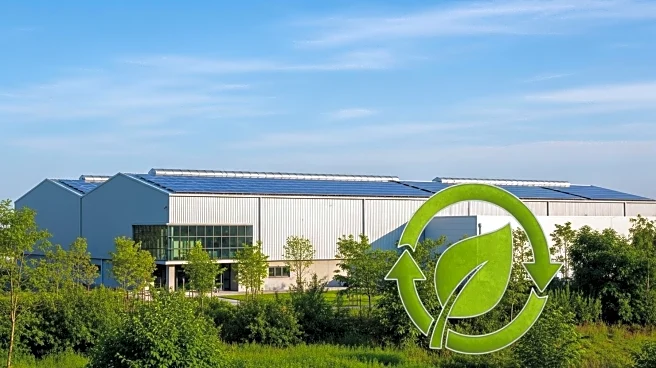What's Happening?
The UK Government's Trade Envoy to Bangladesh, The Rt Hon Baroness Rosie Winterton DBE, along with H.E. Sarah Cooke, the British High Commissioner to Bangladesh, visited Unilever Bangladesh Limited's Kalurghat Factory in Chattogram. The visit underscored Unilever's commitment to sustainability and its significant role in Bangladesh's industrial development. The delegation toured the factory's production lines, observed safety systems, and engaged with leadership and employees. Unilever's Kalurghat Factory, operational since 1962, has achieved milestones such as zero waste to landfill since 2014 and 100% renewable energy certification in 2021. The visit included a tree-planting activity, emphasizing a shared commitment to environmental sustainability.
Why It's Important?
This visit highlights the strong ties between the UK and Bangladesh, showcasing Unilever's role in promoting sustainable industrial practices. Unilever's operations in Bangladesh reflect a successful public-private partnership, with the government holding a significant stake in the company. The factory's achievements in sustainability, such as water conservation and renewable energy use, align with Bangladesh's goals for green economic growth. The involvement of British companies like Unilever in Bangladesh's development journey underscores the importance of international collaboration in achieving sustainability and economic resilience.
What's Next?
The visit may lead to further collaborations between the UK and Bangladesh in areas of sustainability and industrial development. Unilever's ongoing commitment to reducing plastic usage, enhancing digital inclusion, and empowering communities could serve as a model for other companies in Bangladesh. The focus on sustainability and innovation at the Kalurghat Factory may inspire similar initiatives across the region, potentially attracting more international partnerships and investments.
Beyond the Headlines
Unilever's efforts in sustainability not only contribute to environmental goals but also support social and economic development in Bangladesh. The company's initiatives in climate resilience and community empowerment reflect broader ethical and cultural dimensions, promoting inclusive growth and improving livelihoods. These efforts may influence other industries to adopt similar practices, fostering a culture of sustainability and responsibility in the region.









